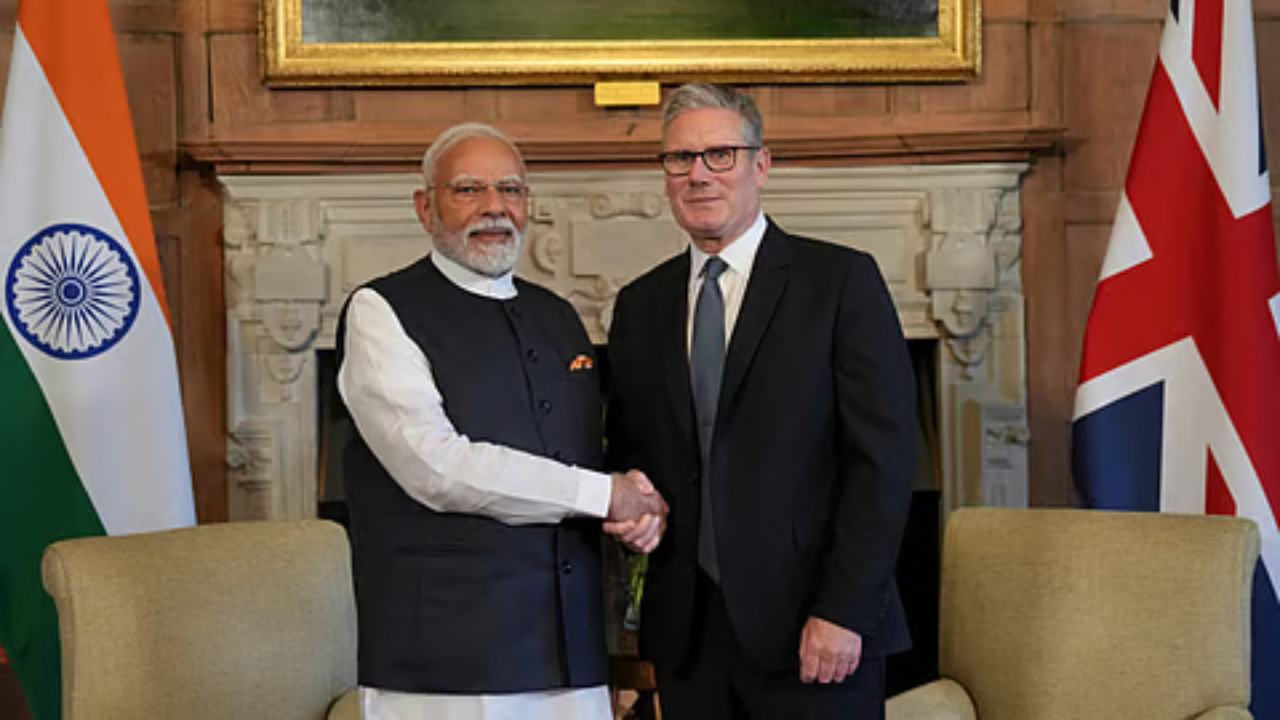In a significant diplomatic development, India and Pakistan have agreed to an immediate ceasefire after several days of heightened military escalation along the Line of Control (LoC) in the disputed region of Jammu and Kashmir. The announcement comes as a much-needed relief to millions residing in the border areas who have been caught in the crossfire of artillery shelling and escalating hostilities.
However, the fragile truce appeared to face early challenges, with fresh reports of ceasefire violations emerging on Saturday. Residents in various sectors of Indian-administered Kashmir reported hearing loud explosions and heavy gunfire, raising concerns about the durability of the ceasefire agreement.
A Timely Diplomatic Breakthrough
The ceasefire announcement was made following backchannel diplomacy facilitated by senior military officials and diplomatic envoys from both nations. High-level talks, held discreetly over the past 48 hours, culminated in a mutual agreement to halt hostilities with immediate effect, aiming to de-escalate tensions that had reached alarming levels this week.
A joint statement issued by both countries read: “India and Pakistan have reaffirmed their commitment to adhere to the ceasefire agreement reached in November 2003 along the Line of Control and all other sectors. Both sides agreed to address each other’s core issues and concerns that have the propensity to disturb the peace and lead to violence.”
Tensions Escalated Over the Past Week
The ceasefire comes after a volatile week marked by intense cross-border shelling, drone intrusions, and reported civilian casualties on both sides of the LoC. Indian defense sources claimed that several Pakistani forward posts had engaged in unprovoked firing, targeting Indian military installations and civilian settlements. Pakistan, on the other hand, accused Indian forces of heavy shelling resulting in the deaths of multiple civilians in Pakistan-administered Kashmir.
The skirmishes had raised alarms within the international community, with the United Nations and major world powers urging both nations to exercise restraint and seek a peaceful resolution through dialogue.
Ceasefire Violations Reported Hours After Agreement
Despite the ceasefire agreement, sporadic incidents of shelling were reported in the Poonch and Rajouri districts of Jammu and Kashmir late Saturday evening. Local residents recounted hearing multiple blasts and intermittent gunfire throughout the night.
An Indian Army official, speaking on the condition of anonymity, stated: “We observed some ceasefire violations from across the border despite the agreement. Our forces exercised maximum restraint and responded in a controlled manner to ensure the situation does not escalate.”
Pakistani military spokesperson Major General Ahmed Sharif also acknowledged the incidents but blamed Indian forces for “deliberate provocations.”
Both sides, however, have maintained that mechanisms are in place to ensure the ceasefire holds and that field commanders have been instructed to maintain strict vigil and avoid escalation.
A Fragile Peace: Challenges Ahead
Analysts caution that while the ceasefire is a welcome move, its success depends on sustained dialogue and genuine efforts to address underlying disputes, particularly the long-standing Kashmir issue.
Dr. Ayesha Siddiqua, a strategic affairs expert, commented: “This ceasefire is a step in the right direction, but both nations must now engage in meaningful diplomatic engagements to ensure that these agreements translate into long-term peace. Without addressing core political grievances, such truces remain vulnerable to collapse.”
International Community Welcomes Move, Calls for Dialogue
The ceasefire agreement has been welcomed by the international community. The United Nations Secretary-General António Guterres expressed hope that the ceasefire will pave the way for broader peace talks.
In a statement, the UN said: “The Secretary-General welcomes the ceasefire agreement between India and Pakistan and urges both parties to build on this momentum to engage in sustained dialogue aimed at resolving their differences through peaceful means.”
The United States, European Union, and several Middle Eastern nations also issued statements lauding the ceasefire and called for continued diplomatic engagements between New Delhi and Islamabad.
Humanitarian Crisis in Border Villages
Meanwhile, the humanitarian situation in the border villages remains dire. Thousands of families have been displaced due to the ongoing shelling over the past week. Relief agencies and local administrations are working to provide essential supplies, but continuous hostilities have hampered their efforts.
Sarpanch Mohan Lal of a border village in Poonch said: “Our people are living in constant fear. Every time there is an agreement, we hope for peace, but violations shatter that hope. We appeal to both governments to ensure this ceasefire holds for the sake of innocent civilians.”
Looking Forward
As India and Pakistan navigate the complexities of this ceasefire, the world watches with cautious optimism. Both governments have an opportunity to de-escalate decades-old hostilities and prioritize the well-being of millions affected by the conflict.
The coming days will be critical in determining whether this ceasefire holds firm or falls prey to provocations and mistrust. Diplomatic channels are expected to remain active, with further meetings anticipated between key officials to establish confidence-building measures (CBMs) along the border.
For now, the ceasefire stands as a fragile yet significant step towards peace in a region yearning for stability.















